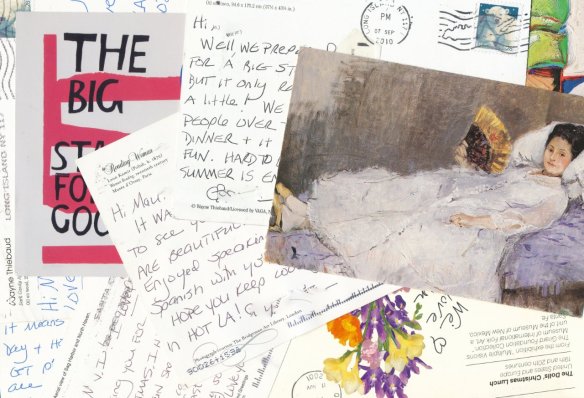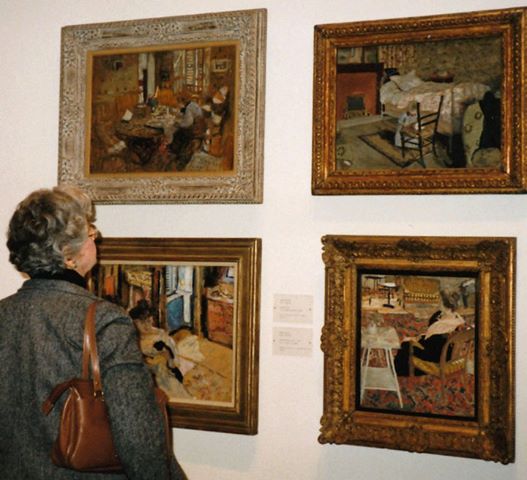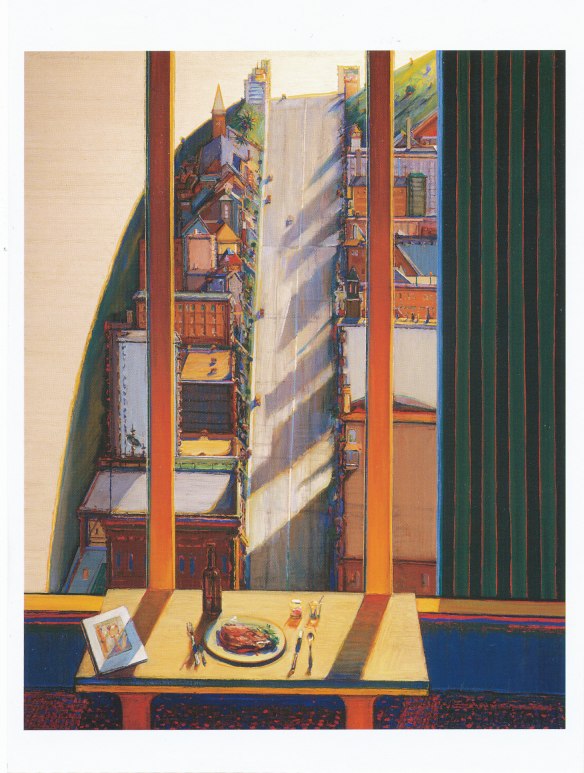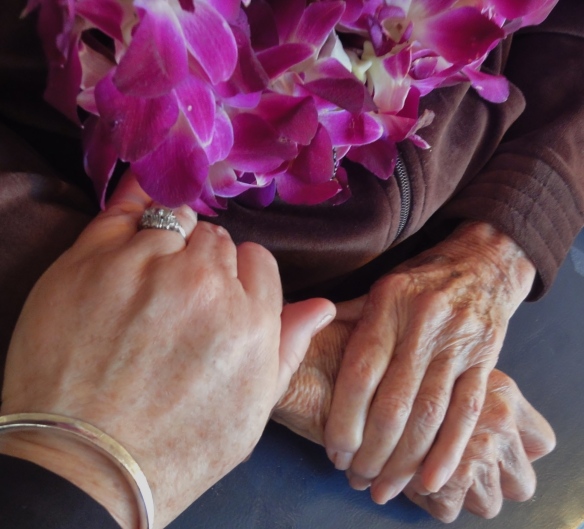- Vuillard never ceases to amaze. I recall a poignant moment with our Mother in front of one of his paintings… she was simply swept into the picture. It was almost as though she had been there. I realized at that moment perhaps more than any other…she understood the language of painting in a way one did not have to articulate.
~From a letter by my Sister, an artist
A few weeks after my mother moved into the nursing home, I sent her a postcard; the image was a painting by Monet.
Later that same week I sent a Matisse.
And a few days later, Vuillard.
If living in a nursing home meant my Mother could no longer explore museums and galleries,
then I would take the museums to her.
And so began our decade of discovery—painting by painting, postcard by postcard.
But art was only part of our discovery.
There was another revelation, completely unexpected;
the postcards became our lifeline.
In the world of dementia, every sentence is precarious; every exchange hard won. As my Mother’s dementia tightened its grip, her ability to converse became increasingly tenuous. Her memories were tangled; thoughts confused; words frequently out of reach.
During visits or phone calls, her responses were often nebulous; we could explore a new topic for maybe a sentence or two, if at all.
But I discovered if a subject had been mentioned on a postcard, we could actually have an extended conversation; it was as though she had needed time to absorb my words and find her response.
Every time I walked into her room, I found her clutching several postcards. She carried them wherever she went; the edges bent; words smudged. Like childhood flashcards, she repeatedly studied each one, examining the images; reading each sentence over and over and over again.
I wrote simple, clear messages; looking back, I think I invented the tweet:
You remember Mary from Minnesota…
I met a famous chef…
I saw a great play…
Perhaps through sheer repetition, these simple, brief messages laid the groundwork for more involved, interesting and even fun interactions. And during our conversations, she could introduce topics without any prompting from me…
Did you have fun with your Minnesota friend?
Tell me about the French chef!
I know you liked that play, but I didn’t think it was so hot!
(I loved that she formed an opinion about a play she hadn’t even seen; a true critic!)
Despite the treacherous struggles of her mind, the postcards revealed my Mother still had more than a glimmer of cognitive ability. After a series of cards about the New York Yankees, she turned to me and sardonically inquired:
Well Hallie, what do you do for fun these days, other than baseball?!
She even grasped information I hadn’t intended to reveal. I never told her I had changed jobs, leaving the “security” of a big company to work with my best friend.
But because I was spending more time with my friend, unintentionally Elie’s name appeared more frequently in the cards. And one day my Mother turned to me:
I notice you mention Elie more often these days. Are you girls spending more time together?
Her cognition was severely diminished,
but she was still able to read between the lines.
My perceptive Mama;
She was still there.
For more than ten years, I sent postcards several times a week. She saved every one until the Fire Department said she had too much paper in her room! My postcard repertoire expanded beyond the art world to include scenic views, tourist sites and even the free ones from restaurants; some weeks almost any 3 by 5 paper would do!

Postcards sent to my Mother included artists Berthe Morisot, Corita Kent and Wayne Thiebald among many others…
But while I raced to write the cards, I always knew someday it would end.
I always knew that one card would be the last card.
Columbus Day, 2010.
We were watching the final game of National League Championship Series:
the Giants vs. the Braves.
(What do you do for fun, other than baseball…?)
Between innings, I walked over to my desk; I chose a postcard:
Apartment View by Wayne Thiebald.
And I wrote the last message.
As my Mother lay dying,
I told her we had a nice weekend; we went to Long Island;
we walked on the beach.
Shortly after I wrote a few simple words,
3000 miles away,
my Mother died.
It was a little after 6 PM in Los Angeles;
right after her dinner hour.
A few minutes before 9 PM in New York;
between innings;
I selected the last image.
And I wrote the last card;
the postcard to the edge…



